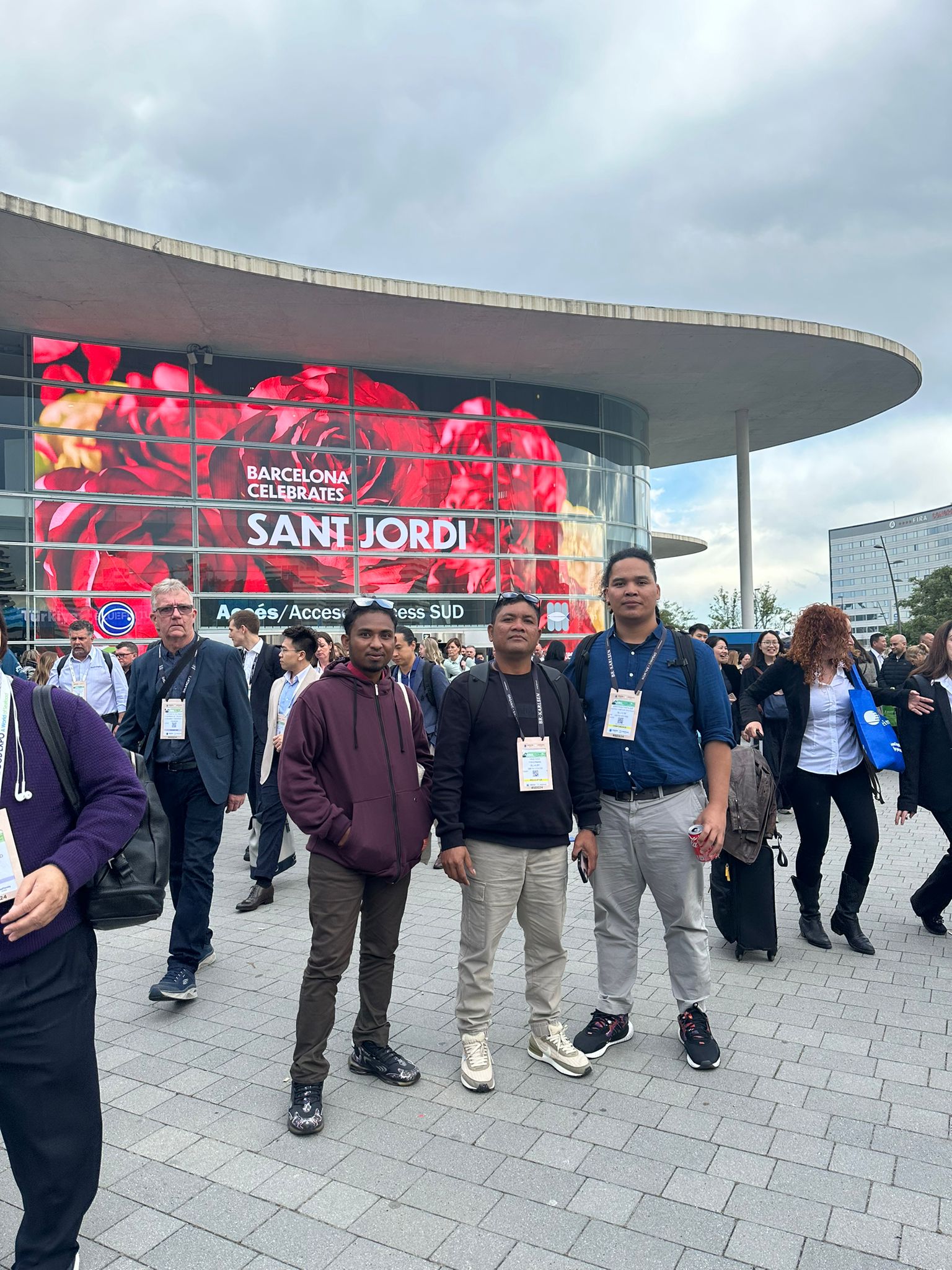(Comunicado de imprensa)
Vozes dos Trabalhadores da Cadeia Asiática de Suprimento de Vestuário: Um Relatório sobre Violência da Classe Feminina
Uma aliança global de sindicatos, e organizações pelos direitos dos trabalhadores e direitos humanos no qual inclui Asia Floor Wage Alliance (AFWA), CENTRAL Cambodia e Global Labor Justice liberaram um relatório inovador que foi feito entre as fábricas no dia 25 de Mayo revelando violência da classe feminina da cadeia Asiática de suprimento de vestuário Walmart. As organizações também estão pedindo para o Walmart tomar *providências imediatas*, para finalizar a violencia e assedio que estas mulheres trabalhadoras estão forçadas a enfrentar diariamente. Após iniciativa empreendedora dos sindicatos, o International Labour Organization (ILO) vai convocar para configurar um padrão internacional de trabalho na violência da classe feminina. Líderes de sindicatos ao redor do mundo, governos e negócios vão encontrar para discutir a oportunidade histórica criar um padrão global, protegendo mulheres em todos os setores. Este relatório vai informar a discussão e acertar que os comentarios e recomendações das mulheres trabalhadoras de baixa renda estão sendo ouvidos e empoderados e as cadeias de suprimento que dependem dessas mulheres trabalhadores também são empoderadas para criar um sistema forte para os empregadores, empresas multinacionais e governos eliminar violência da classe feminina.
Este relatório inclui uma investigação de violência da classe feminina na fábrica da cadeia de suprimento Walmart conduzido entre Janeiro 2018 e Maio 2018 em Dhaka, Bangladesh, Phnom Penh, Camboja e Indonésia Java Oeste e segue um relatório feito no ano 2016 documentando violações de direitos humanos na cadeia global de suprimentos e os cinco tribunais detidos pelo Asia Floor Wage em todos os setores.
Estes novos estúdios documentam o assédio sexual e violência da classe incluindo violência física, abuso verbal, a força, ameaças e retaliações, uma rotina falta de liberdade incluindo forçado horas extras. Estes estúdios também esclarecem que a cadeia de suprimentos normaliza esta violência da classe por que acontece com muita frequencia.
Sulatana, Uma Ex gerente de linha de produção em uma fábrica de fornecedores Walmart in Dhaka, Bangladesh compartilha a sua experiencia com assédio sexual e retaliação:
“Ele flertou comigo, ele tocaria em meu ombro ou na minha cabeça. eu tentei ignora-lo. eu pensei que se eu não mostrasse interesse, ele iria parar. Não funcionou. Ele me ofereceu um aumento de salário e uma promoção se eu concordasse, Quando eu não aceitei, ele ameaçou me demitir.
Eu estava ansiosa e com medo. Eu faltei no trabalho no dia seguinte…A polícia se recusou a receber minha queixa alegando que eu não tinha nenhuma prova autêntica. Alguns dias depois,…o gerente geral me chamou para seu escritório e pediu-me para renunciar imediatamente. Quando eu abordei o Recursos Humanos, me disseram que a decisão final era do Gerente Geral.
Shahida, Uma costureira de 26 anos que opera em uma fábrica de fornecedores in Dhaka , Bangladesh detalha o abuso verbal direcionado que as trabalhadoras vivenciam para evitar receber benefícios no local de trabalho:
“Comecei a trabalhar nesta fábrica em abril de 2013. Ganhei uma boa reputação como funcionário qualificado e dedicado. O chefe de linha e o supervisor estavam felizes com o meu trabalho. Depois de completar meu quarto ano na fábrica, eles inverteram sua atitude em relação a mim. Eles gritavam comigo e me ameaçavam. Eles me chamavam de nomes. Eu reportei isso para o gerente da fábrica, mas ele respondeu aumentando minhas metas de produção. Eu não conseguia mais trabalhar assim. Em março de 2018, antes de completar meu quinto ano, deixei o emprego. Era exatamente o que eles queriam. Eu me demiti e eles não me pagaram a gratificação que eu tinha ganhado porque eles disseram que eu havia me demitido do trabalho.”
Uma trabalhadora de uma antiga fábrica de fornecedores Walmart em Kingsland Garment, Jacarta, na Indonésia, descreve o impacto físico de trabalhar longas horas sentado em uma fábrica mal ventilada :
“No trabalho, estou com dor de estômago, digestão e nariz problemas de sentar longas horas trabalhando tanto tempo extra, e trabalhando tantos dias. Mas às vezes eu só tenho que esquecer minha doença porque não tenho dinheiro. Eu tenho que ser a rocha da família.
Anannya Bhattacharjee, secretariado de AFWA, diz “o Walmart e o criador de tendências de gestão das cadeias de suprimento e confiam na exploração das mulheres trabalhadoras para capitalizar os lucros. Eliminar violência da classe feminina das cadeias de suprimento o Walmart e as outras marcas devem assumir a responsabilidade. É necessario tambem que o Walmart e as outras marcas respeitam a liberdade de associação e barganha coletiva que permite às mulheres ser agentes de mudança na economia global.”
“A necessidade de dignidade e equidade é global,” diz a Jennifer (JJ) Rosenbaum, diretora de Global Labor Justice nos EUA. “Mulheres nos EUA devem fazer mais. Devemos exigir prestação de contas nas lojas, nos armazéns e nas redes globais de produção.
Tola Meun, diretora executiva de CENTRAL diz, “Como os alvos de produção são irrealistas, violência da classe e uma realidade que estas mulheres trabalhadoras de confecções enfrentarem diariamente. Estos casos estão nunca reportados por ter medo de retaliação no trabalho.”
Em resposta aos relatorios, o Women’s Leadership Committee de Asia Floor Wage Alliance esta requisitando o Walmart a fazer três passos de acção imediato:
- Suporte público e um compromisso proativo ao implementar a ILO convenção de recomendações da classe feminina violentada que inclui as recomendações da AFWA e parceiros.
- Encontrar com o AFWA e o comitê de mulheres líderes nos próximos três meses para discutir descobertas na cadeia de suprimentos e próximos passos.
- Trabalhar proativamente com AFWA para comandar o comitê de mulheres nas fábricas que eliminam violência sexual contra a classe feminina pelas empresas.
Esta semana o Walmart teve uma reunião com seus acionistas e liberou um relatório de responsabilidade global no início deste ano. O Walmart ainda não forneceu uma resposta substantiva apos os relatorios e solic’ita’co’es de acc”ao foram mandados na manha’ no dia 23 de Mayo, 2018.
Trabalhadores do Walmart com o Organization United for Respect at Walmart (OUR) anunciaram suporte de #TimesUp Legal Defense Fund para suportar litigio contra o Walmart para o assedio sexual.
Worker Voices from the Asian Walmart Garment Supply Chain: A Report on Gender Based Violence
A global coalition of trade unions, worker rights and human rights organizations, which includes Asia Floor Wage Alliance (AFWA), CENTRAL Cambodia , and Global Labor Justice released a groundbreaking factory level research report on Friday, May 25th exposing gender based violence in Walmart’s Asian garment supply chain. The coalition is also asking that Walmart take immediate action t to end the violence and harassment that women garment workers are forced to endure regularly in their garment supplier factories.
After significant initiative from trade unions, the International Labour Organization (ILO) will convene to set international labor standards on gender based violence . Trade union leaders from around the world along with governments and business will meet to discuss the historic opportunity to create a global standard protecting women across sectors. This report has been prepared to inform this dialogue and to make sure the experience and recommendations of low wage women workers and the sectors and supply chains that rely on them are uplifted in order to create a strong framework guided by the leadership of trade unions and worker organizations that will provide employers, multinational enterprises, and governments a blueprint for eliminating gender based violence in the workplace.
The report includes an investigation of gender-based violence in the Walmart garment supplier factories conducted between January 2018 and May 2018 in Dhaka, Bangladesh, Phnom Penh, Cambodia; and West Java, Indonesia; and builds on a 2016 report documenting human rights violations in Walmart’s garment global supply chain and five tribunals held by the Asia Floor Wage on the sector overall.
This new research documents sexual harassment and violence including physical violence, verbal abuse, coercion, threats and retaliation, and routine deprivations of liberty including forced overtime. The research also makes clear these are not isolated incidents and that gender based violence in the Walmart supply chains is a direct result of how this employer conducts business.
Sulatana, a former production-line manager in a Walmart supplier factory in Dhaka, Bangladesh shares her experience with sexual harassment and retaliation:
“He flirted with me, he would touch me on the shoulder or touch me on the head. I tried to ignore him. I thought if I showed no interest, he would stop. It didn’t work. He offered me a salary increase and a promotion if I agreed. When I did not, he threatened to fire me. I was anxious and afraid. I skipped work the next day… The police refused to receive my complaint on the grounds that I had no authentic proof. A few days later, . . . the General Manager me to his office and asked me to resign immediately. When I approached Human Resources, I was told that the General Manager’s decision was final.”
Shahida, a 26-year-old sewing machine operator in a Walmart supplier factory in Dhaka, Bangladesh details the targeted verbal abuse women workers experience in order to avoid being paid workplace benefits:
“I began working at this factory in April 2013. I earned a good reputation as a skilled and dedicated worker. The line-chief and supervisor were happy with my work. After completing my fourth year at the factory, they reversed their attitude toward me. They shouted at me and bullied me. They called me names. I reported this to the factory manager, but he responded by raising my production targets. I couldn’t manage to work this way. In March 2018, before reaching my fifth year, I quit the job. It was exactly what they wanted. I resigned and they did not pay me the gratuity I had earned because they said I had resigned from the job myself.”
A woman worker from a former Walmart supplier factory in Kingsland Garment, Jakarta, Indonesia describes the physical impact of working long hours, seated, in a poorly ventilated factory:
“At work I’m facing stomach pain, digestion and nose problems from sitting long hours working so much overtime, and working so many days. But sometimes I just have to forget my sickness because I have no money. I have to be the rock in the family.”
Anannya Bhattacharjee, secretariat of AFWA says, “Walmart, the trend-setter for lean supply chain management relies on women workers’ gender-based exploitation in their supply chains to maximize their profits. To eliminate gender based violence in supply chains, Walmart and other brands must take responsibility on their supply chains. It is also fundamental that Walmart and other brands respect the freedom of association and collective bargaining that allow women workers to be change agents in the global economy.
“The movement for dignity and equity at work for all women is global”, says Jennifer (JJ) Rosenbaum, U.S. Director of Global Labor Justice. “Women in the U.S. shouldn’t stop at holding Walmart and U.S. corporations accountable for what happens in their U.S. retail stores and warehouses. We must also demand accountability along their global production networks.”
Tola Meun, Executive Director of CENTRAL says, “Gender based violence is a daily reality for women garment workers driven to meet unrealistic production targets in Walmart supply chains. Most of these cases are not reported due to fear of retaliation in the workplace.”
In response to the reports, the Women’s Leadership Committee of the Asia Floor Wage Alliance is asking Walmart for three immediate action steps :
- Publicly support and commit to proactively implement an ILO Convention Recommendation on Gender Based Violence that includes the recommendations from the Asia Floor Wage Alliance and partners.
- Meet with Asia regional meeting (s) organized by the Asia Floor Wage Women’s Leadership Committee in the next three months to discuss the supply chain findings and next steps.
- Proactively work with the Asia Floor Wage Alliance to pilot women’s committees in factories that eliminate gender based violence and discrimination from the supplier factories.
Walmart held its shareholder meeting this week and released a report on global responsibility earlier this year. A substantive response from Walmart has yet to be received after the reports coupled with requests for action were sent to Walmart the morning of May 23 rd , 2018.
Walmart workers at U.S. retail stores with the Organization United for Respect at Walmart (OUR) announced support from the #TimesUp Legal Defense Fund to support litigation against Walmart for sexual harassment.
Download PDF
[/vc_column]
[/vc_row]








